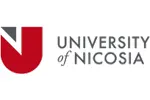

| The award | How you will study | Study duration | Course start | Domestic course fees | International course fees |
|---|---|---|---|---|---|
| MSc | Full-time | 3 semester | find out | find out | find out |
| MSc | Part-time | find out | find out | find out | find out |
Aim of the Programme
The MSc Programme in Biomedical Sciences aims to offer quality education and to have graduates with a high degree of professional ethos and expertise in the specialization fields associated with laboratory diagnosis and monitoring of diseases.
It is an integrated programme committed to promote instruction of core theory, practice and research principles of biomedical sciences as well as to promote the teaching of clinical specialities (modalities) in one of the following fields: Immunology, Microbiology, Clinical Biochemistry or Hematology.
To begin with, the programme aims to enable graduates to specialize in Immunology (this application). In due course, concentration courses in the other fields (i.e. Microbiology, Clinical Biochemistry and Hematology) will be added to the programme, giving the option to graduates to study and specialize in one or more areas if they wish.
Educational Aims of the Programme:
The educational aims of the programme refer to and comply with the subject benchmarking of the EC4 European Syllabus for Post-Graduate training in Clinical Chemistry and Laboratory Medicine: version 4-2012 as well as with those of the UK QAA organization (ISBN 1 84482 146 3 © Quality Assurance Agency for Higher Education 2004).
The general aims that apply to all concentrations of the programme (Immunology, Biochemistry, Microbiology, Hematology) are:
Aims specific to the concentration of Immunology:
Career Prospects
Biomedical science has to play an important role in healthcare. The component subjects taught are in the forefront of scientific research and, therefore, the graduates of the programme will be able to understand current discoveries, controversies and concerns regarding human health and diseases. The programme graduates, therefore, can be employed in various areas in the public and private health related sectors since their education covers both, the biological and medical science. In addition, completion of this programme can be considered as part of the 9 year minimum postgraduate training for Biomedical Laboratory Scientist that is required for registration of specialist expertise towards licensing to practice and direct a Bioscience/Clinical Laboratory.
Overall based on the core courses and specialization courses that students can take, it will qualify them upon graduation to work or provide service or do research in the relevant field, at a private or public hospital or at pharmaceutical industry medical or research laboratories. Alternatively they can also take an administrative post in the pharmaceutical industry and at health/disease related non-governmental organizations, companies, government or international organizations (i.e. health insurance companies, health service providers, WHO, the Red Cross etc.).
Specific major employment areas include:
Access to Further Studies
Graduates will be able to continue further their postgraduate studies (PhD) towards an academic/research career or towards specialization (M.Sc.) in another field of Biomedical Sciences and/or other related areas. Graduates will also be qualified to go to medical school or pursue a teaching career in Biological Sciences.
The design of this program makes provision for students wishing to continue their studies towards a PhD, through the offering of a Thesis option. By selecting to complete a Thesis, students will have the opportunity to work on a substantive piece of research work and they will be positioned in an advantageous position to be accepted in a doctoral program over graduates with no experience in Thesis writing.
Contact University of Nicosia to find course entry requirements.
Below are some suggested courses at other providers that you may also be interested in:
Advanced Bachelor of Bioinformatics at home Advanced Diploma, Bachelor Degree
Howest University of Applied Sciences
Find out moreInstitute of European Studies, Jagiellonian University
Find out moreMusic (Popular, Contemporary & Commercial) BA (Hons)
The Liverpool Institute for Performing Arts (LIPA)
Find out moreBehavioural Economics Master
Erasmus School of Economics, Erasmus University Rotterdam
Find out moreMaster (Blended Learning) of Evaluation (MABLE) MA
Distance and Independent Studies Center, University of Kaiserslautern-Landau (RPTU), Germany
Find out moreIf you do not meet the entry requirements for this course then consider one of these postgraduate preparation courses from another institution:
Graduate Diploma of Engineering (Electrical Systems)
Engineering Institute of Technology
Find out moreThere are 135 other courses listed from University of Nicosia. A selection of these are displayed below:
Architecture - Concentrations: 1. Sustainable Architecture, 2. Interior Architecture MA
University of Nicosia
Find out moreFind out more about studying in Cyprus